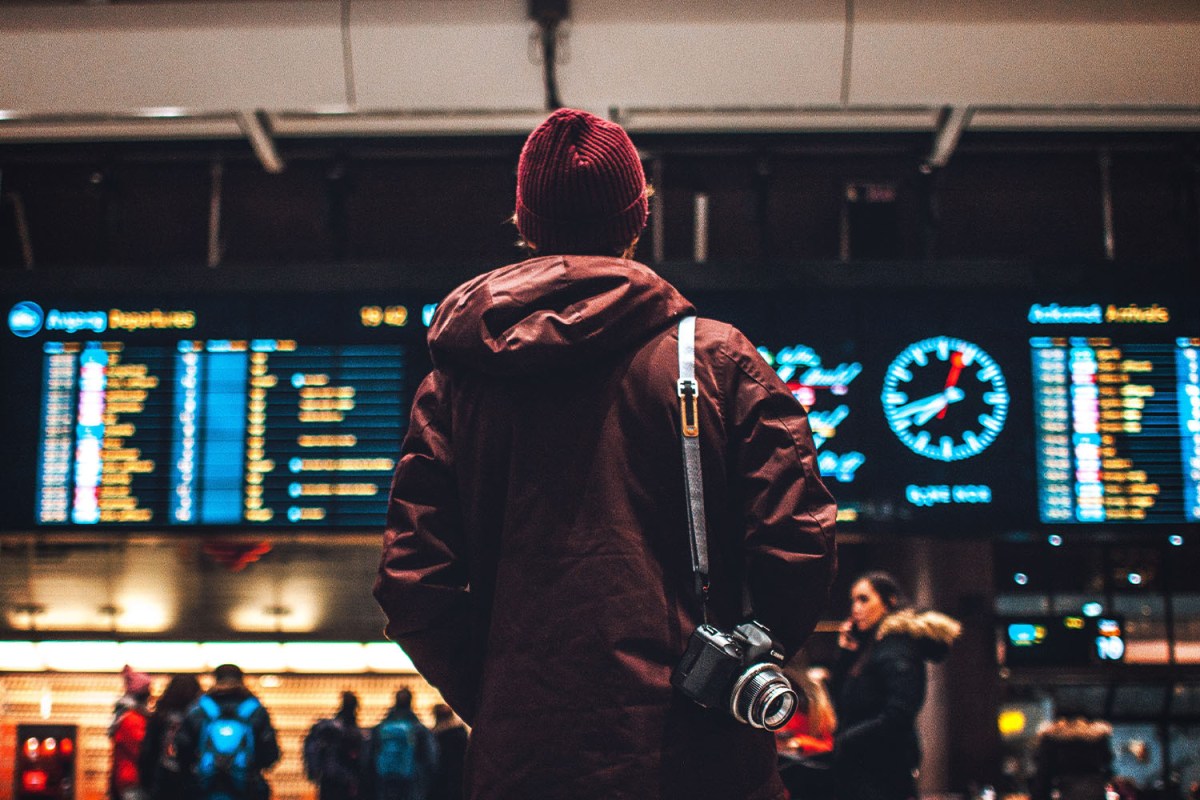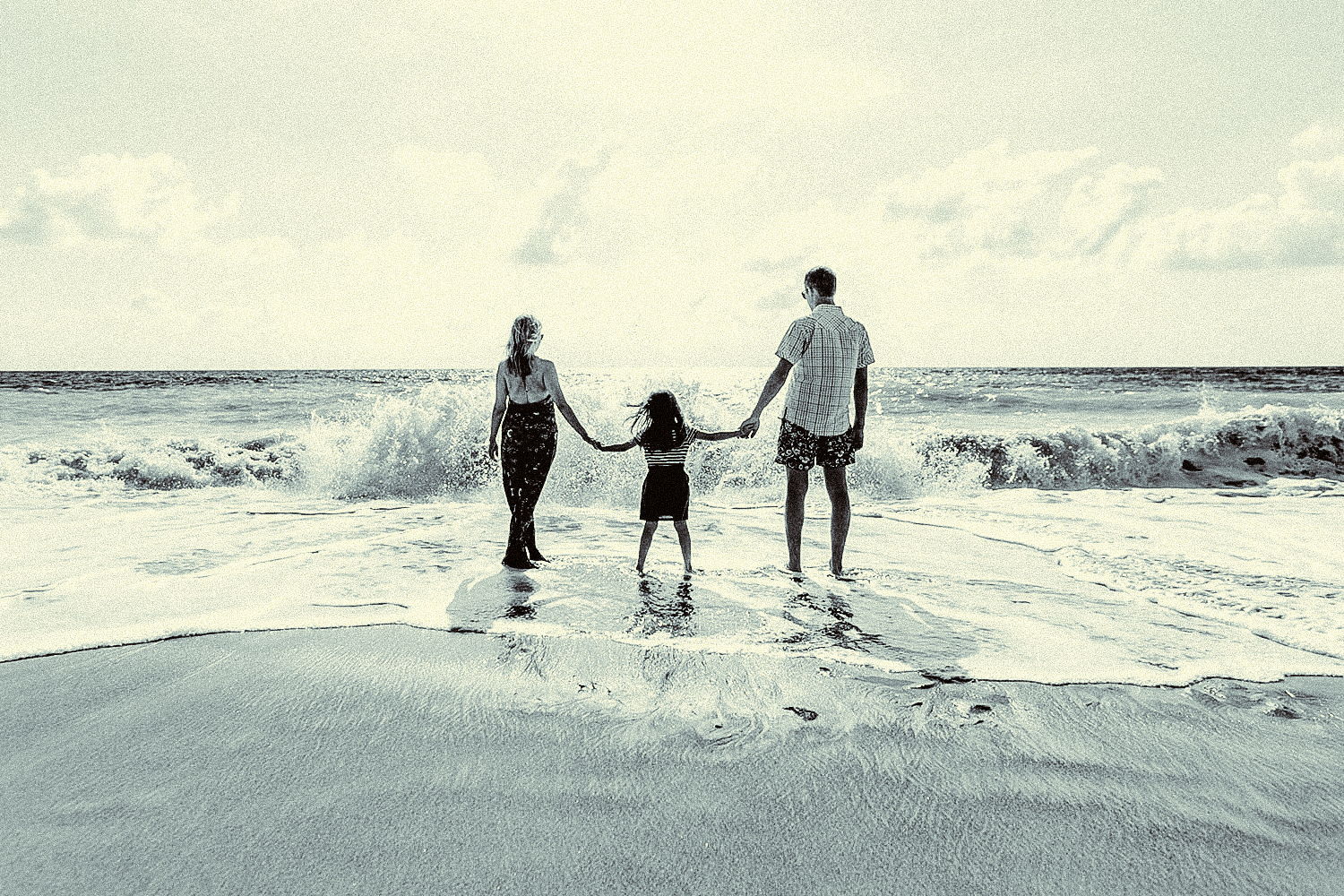One morning a few weeks back, our CEO announced that he was taking a much-needed vacation. He’d booked accommodations in Montreal and planned to rid himself, however briefly, of his day-to-day responsibilities. The kicker? He was leaving his wife and kid at home and going on this trip alone.
The news, as one would expect, was met with mixed reviews. I, the company’s resident vacation advocate, applauded his decision. Others expressed various levels of confusion and maybe even some thinly veiled jealousy: “You’re traveling alone? Without your wife?”
But the truth is that there’s never been a better or more necessary time to build some alone time into your calendar. For the overwhelming majority of people who live with their significant others, the past 18 months have been a bold experiment in cohabitation. In February, Groupon — in partnership with mathematician and Cambridge doctoral candidate Bobby Seagull — came up with a proprietary mathematical formula to help quantify the extra time couples had spent together in quarantine. Based on a sample size of 2,000, the findings were this: the average couple had experienced the equivalent of four extra years of together-time during the pandemic.
It’s the most obvious explanation for the findings of a more recent study from Culture Trip which noted that many people are not, at present, looking forward to traveling with their partners. Among the 2,000 Americans surveyed, one in three said that having to spend time with their partner after months of being at home together would be “the most annoying thing” when traveling again after the pandemic.
Until now, those sentiments have not really materialized into identifiable travel trends. 2021 was, by and large, the year of family reunion-style destination trips and large group travel. Not only were people traveling with their significant others, they were — in many cases — traveling with their significant other’s extended family, too. Luxury travel companies say inquiries into trips of this nature continue to exceed pre-pandemic numbers.
“There’s always been a consistent interest in family travel — especially multi- or intra-generational (grandparents with grandchildren) — but since the pandemic, we’ve seen an increase in all family groups,” a spokesperson for luxury travel company Abercrombie & Kent says. “Historically, guests may have taken a big trip as a couple for their anniversary or to celebrate a milestone birthday. Now, they’re taking the whole family.”
Last summer and into this fall, Abercrombie & Kent saw a strong trend of extended families traveling in groups as large as 14. In 2022, they even have a family of 24 booked for a full European excursion.
This renewed interest in group travel will likely continue to gain steam as the effects of the pandemic wane, but there’s an argument to be made that it’s contributing to another issue altogether: a lack of time spent alone. Bestselling author and relationship expert Susan Winter certainly thinks that could be the case, and that taking a solo vacation is a good way to address it.
“The discussion is how much time together, versus how much time apart. We are accustomed to vacations being taken together as a couple, quality time,” Winters says. “Now we are discovering that, in order to reconnect with ourselves and have much more that we can give to our partner, many individuals within a couple are choosing to do a solo trip.”
The motivations and benefits of this kind of arrangement are numerous. “It’s to rediscover a part of themselves that they have not been able to experience since they’ve been married or coupled — perhaps they were too busy raising their children to go rock climbing, or they’ve always wanted to do some special journey — but the family was a precedent, so they were unable to fulfill this desire,” Winter continues. “Now we are finding that modern individuals, within a couple, are carving out time to fulfill their own needs and goals, their personal goals. The end result, if done properly, can be very beneficial to the relationship.”
In pre-pandemic times, the desire to travel sans partner was very often perceived as a red flag, the implication being that said couple was disinterested in shared experiences, or worse, one or both parties no longer loved the other. Expressing a desire for space might be interpreted as a first step on the road to splitsville. Winter cautions against that line of thinking.
“You’ve probably been with your partner for a year and a half, looking at each other in sweatpants and a soiled T-shirt,” she says. “[Traveling alone] is a good way to get away, rediscover yourself, reconnect [with yourself], do something you love that maybe your partner doesn’t like and really feed your own soul. And [then] come back to the relationship with something new, because growth in a relationship is important and ongoing growth has to be individuals growing, doing their own thing, and then bringing that new input back into the relationship to allow it to expand.”
A less radical truth is that it’s also okay (even healthy!) to have and maintain divergent interests — up to, and including, travel. My partner’s ideal trip would be to a Nordic country in the dead of winter, whereas I gravitate toward Central America. It’s been the source of some occasional friction come vacation-planning time, and we’ve toyed with the idea of traveling separately. What’s important, according to Winter, is that it’s mutually beneficial and mutually agreed upon.
“To have the time away be acceptable, and the conversation easy, you have to go back to what the benefit is … not only to the individual who’s taking time away, but also to the partner, who’s going to receive a better version or mate,” she says. “It’s not an escape from your partner, it’s not to avoid a problem — it’s to reignite your passion, reboot and refresh.”
That said, there are most definitely circumstances under which you should not propose a solo jaunt to your significant other. If you haven’t been together for very long and you’re choosing to trade the little bit of free time you could spend together for time alone, that’s a clear indication you aren’t prioritizing your relationship. Rather, traveling stag is going to yield the best results with those who are living together or married. Adding distance to a relationship that already has plenty of it is not a recipe for success.
Of course, it’s also ill-advised to ask for a solo vacation if there exist any unresolved issues. Even if it’s with the intent to “sort things out,” it can be misconstrued as running away. Taking space has to have a definitive end point, and the agreement needs to be padded with rules that both parties feel comfortable with.
“Oftentimes, we lose ourselves in relationships. To keep ourselves grounded and connected to ourselves is an ongoing effort,” Winter says. “You know how resentful you can be if you are just off center because you’ve had no time to yourself, no time to regroup, no time to chill, no time to do what you wanted to do. That happens a lot in a relationship. So if these things are structured and they’re purposeful, then they can be beneficial to the relationship.”
This past Tuesday, when our CEO triumphantly returned stateside, he was in high spirits. He detailed for us a quiet few days spent in and out of museums, restaurant hopping and walking the city. He seemed, at least outwardly, refreshed and clearly validated in his decision to go alone. A few people in the office even conceded their original position — particularly after finding out that his wife had been the one to suggest the trip to him in the first place.
The Charge will help you move better, think clearer and stay in the game longer. Subscribe to our wellness newsletter today.



























